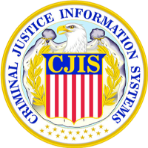Introduction to IT Compliance: Why It Matters
If you work in a DA’s office, you know how critical it is to keep data safe and secure. That’s where IT compliance standards come in. These rules and standards are crucial for keeping data secure and protecting privacy. They also help your office run smoothly and stay out of legal trouble.
So, what exactly are IT compliance standards and why do they matter? Let’s break it down.
Understanding IT Compliance Standards
IT compliance standards are rules and guidelines that help ensure data security, privacy protection, and smooth operations within an organization. They cover things like how data is stored, who has access to it, and how it’s protected from cyber threats.
IT compliance standards are like the rules of the road for data. They tell us how to handle and protect information. These rules come from different places. Some are laws, while others are guidelines from expert organizations and government agencies. It’s important to follow these standards, not just for best practices, but also because it’s often the law.
Why do we need IT compliance standards?
- They help keep our information safe and secure.
- They protect against things like data breaches and cyber-attacks.
- They ensure that we are doing our part to respect and protect people’s personal information.
Where do these standards come from?
- Some are set by the government, like the Health Insurance Portability and Accountability Act (HIPAA).
- Others are created by organizations like the Payment Card Industry Data Security Standard (PCI DSS).
1. Health Insurance Portability and Accountability Act (HIPAA)
HIPAA is a big deal in healthcare data. If you handle medical records, this applies to you. It protects personal health information. Think of it like a shield for sensitive health details — HIPAA ensures these details stay private and secure. This law applies to any health data your office handles. It’s all about strict controls on who can access and share this sensitive information.
2. Criminal Justice Information Services (CJIS) Security Policy
CJIS sets rules for criminal justice information. It’s vital for any office dealing with crime-related data. CJIS sets rules for accessing and sharing this information. The goal? To keep sensitive data safe. Think of it as a lock and key system. Only the right people get access. It helps maintain the integrity of criminal justice processes.
3. Payment Card Industry Data Security Standard (PCI DSS)
Handling payments? Then PCI DSS is key. It secures cardholder data. When your office processes fines or fees, this standard applies. It’s about safe transactions. PCI DSS ensures that card information is handled securely. This means encryption and secure networks. It’s like a safeguard for financial information.
4. General Data Protection Regulation (GDPR)
GDPR is a European standard, but it has a global reach. If your office handles data from the EU, GDPR matters. It gives individuals control over their personal data. One of the big things that GDPR focuses on is getting consent from individuals before using their data, and being transparent about how that data is being used. It’s all about respecting privacy, no matter where someone is.
GDPR is about respecting privacy across borders. It’s an important link that helps make sure people’s personal information is being handled in the right way, no matter where it’s coming from.
5. Federal Information Security Management Act (FISMA)
FISMA is all about U.S. government data security. It applies to any federal information your office handles — this could be anything from social security numbers to top-secret government plans. FISMA requires risk assessments and data protection measures. It’s a framework for keeping government data safe. Imagine a fortress around this information. FISMA helps build and maintain that fortress.
FISMA is important because it ensures that government data is protected from unauthorized access, use, disclosure, disruption, modification, or destruction. This is crucial for national security and the privacy of individuals.
6. National Institute of Standards and Technology (NIST) Framework
NIST provides a comprehensive approach to cybersecurity. It’s not just one rule but a whole framework that guides the protection of digital information. NIST helps identify, protect, detect, respond, and recover from cyber threats. It’s like a GPS for navigating the digital landscape securely.
NIST is all about making sure that your information stays safe and protected from any cyber threats that may come your way.
Why Compliance is a Big Deal
Compliance is about more than following regulatory requirements. It’s about protecting sensitive data from threats and ensuring your office is aligned with privacy laws. Compliance management helps your office stay reliable and trustworthy. It’s a core part of your office’s operations.
Compliance is important for many reasons; it helps you:
1. Protect sensitive data: Compliance regulations help us keep our customers’ and employees’ information safe from cyber threats and hackers.
2. Build trust: When we follow compliance regulations, we show our clients and stakeholders that we take their privacy and security seriously. This helps us build and maintain trust in legal and regulatory landscapes.
3. Avoid penalties: Not following compliance regulations can lead to heavy fines and legal issues. It’s important to stay compliant to avoid these penalties.
4. Enhance your reputation: By being compliant, we show that we operate ethically and responsibly. This can enhance our reputation in the industry and attract more customers.
Staying on Top of Compliance Issues
Keeping up with these compliance standards can be a challenge. But it’s crucial. Here’s how to stay on top:
Regular Training
Keep your team in the know. Regular training sessions help. They keep everyone updated on the latest in data protection.
Regular training sessions will:
- Keep everyone informed about changes in data protection laws and regulations.
- Help your team understand the potential risks and threats to data security.
- Ensure that everyone knows how to handle sensitive information properly.
- Provide an opportunity to review best practices for data protection.
- Allow you to discuss any recent security incidents and learn from the incident response.
Regular training also helps your team feel more confident and secure in their work. It shows that you prioritize their professional development and take data protection seriously.
Stay Informed
Laws and standards can change. Stay informed. Keep an eye on updates in the field. Read the latest news and articles. Join professional organizations. Attend conferences and webinars. Stay connected with colleagues. Share information and resources. Don’t be afraid to ask questions.
Remember, knowledge is power. Stay informed to stay ahead.
Use the Right Tools
Good software is mission-critical to your efforts. It can help manage and protect data. It’s like having a digital guard for your information. Choosing the right digital evidence management system is crucial. This is where a product like Guardify for Prosecution Offices comes in. It’s designed for DA’s offices like yours. Guardify for Prosecutors helps manage and protect data efficiently. It’s user-friendly and aligns with compliance standards like HIPAA and CJIS. Think of Guardify for Prosectors as your digital ally. It simplifies compliance and keeps your data secure.
Regular Audits
Check your compliance regularly to make sure you are following all the rules and regulations. Audits can spot small problems before they become big ones, saving you a lot of trouble in the long run. By regularly conducting audits, you can be proactive in addressing any issues as they come up.
Final Thoughts: Embracing IT Compliance
In a DA’s office, data is everything. Keeping it safe is not just good practice. It’s a must. By understanding and following IT compliance standards, you’re doing just that. It’s about protecting privacy, securing data, and maintaining trust. It might seem complex, but it’s all about keeping your office safe and sound. Embrace these standards. They’re the foundation of a secure and trustworthy office.
Remember, staying compliant is an ongoing journey. It’s about being proactive and informed. And it’s worth it. Your office’s integrity and effectiveness depend on it. So, let’s keep our data safe, secure, and compliant. It’s the way forward for any DA’s office in the digital age.
Curious about how Guardify for Prosecutors can transform your data management and compliance efforts? There’s no better way to understand its impact than seeing it firsthand.
Dive into a comprehensive walkthrough of Guardify for Prosecutors’ features and capabilities. You’ll see how it seamlessly aligns with key IT compliance standards, making your job easier and more secure. This demo is your first step towards revolutionizing data protection in your DA’s office. Don’t wait to explore how Guardify for Prosecutors can make compliance a breeze!


